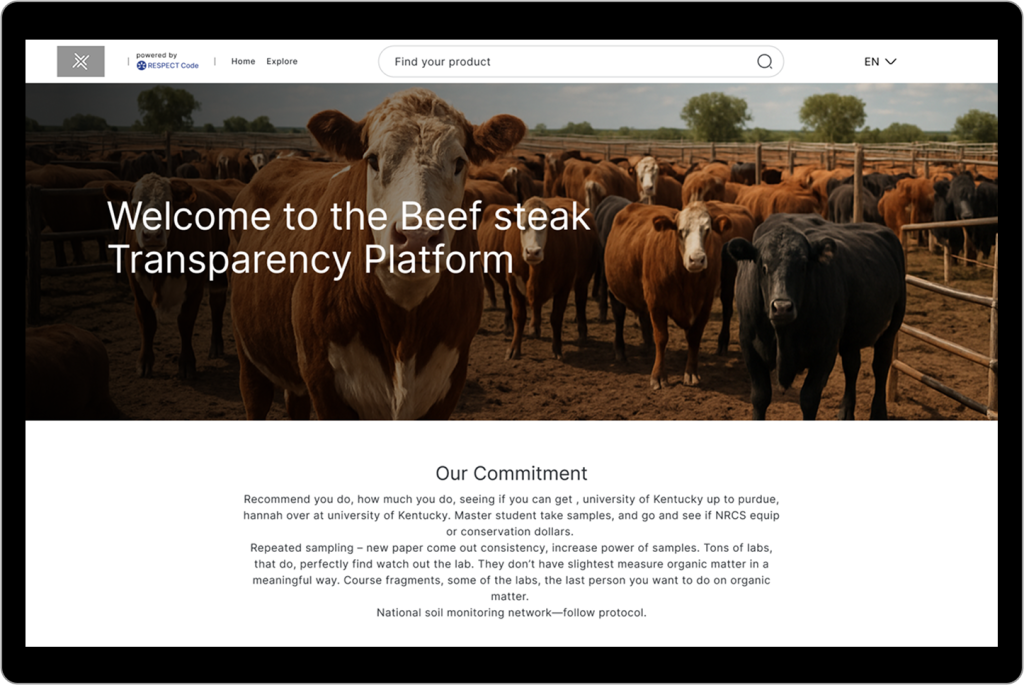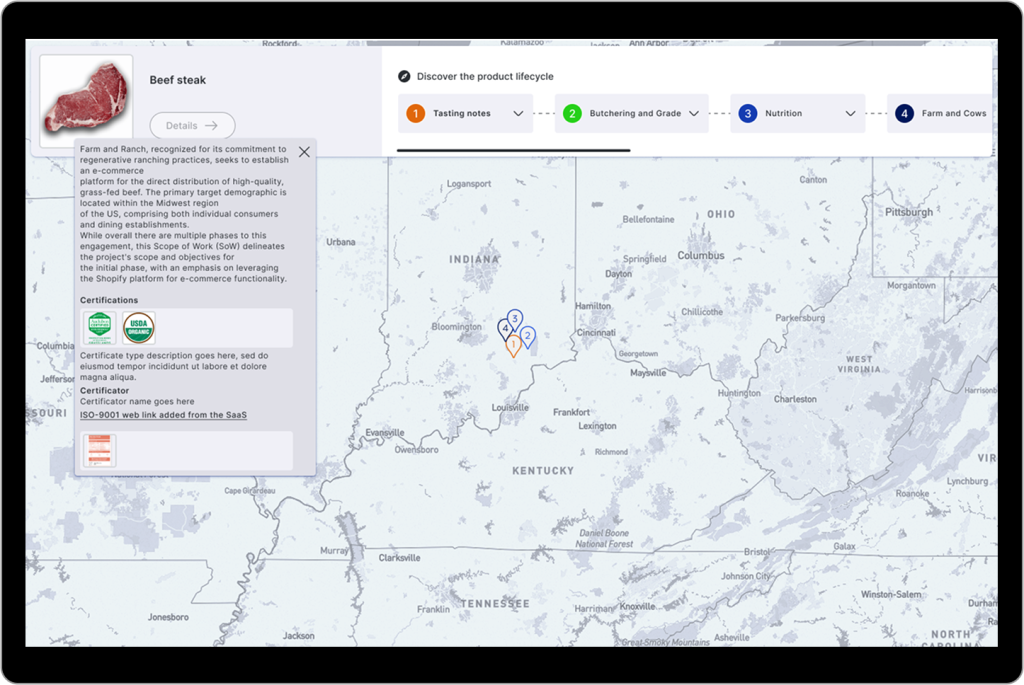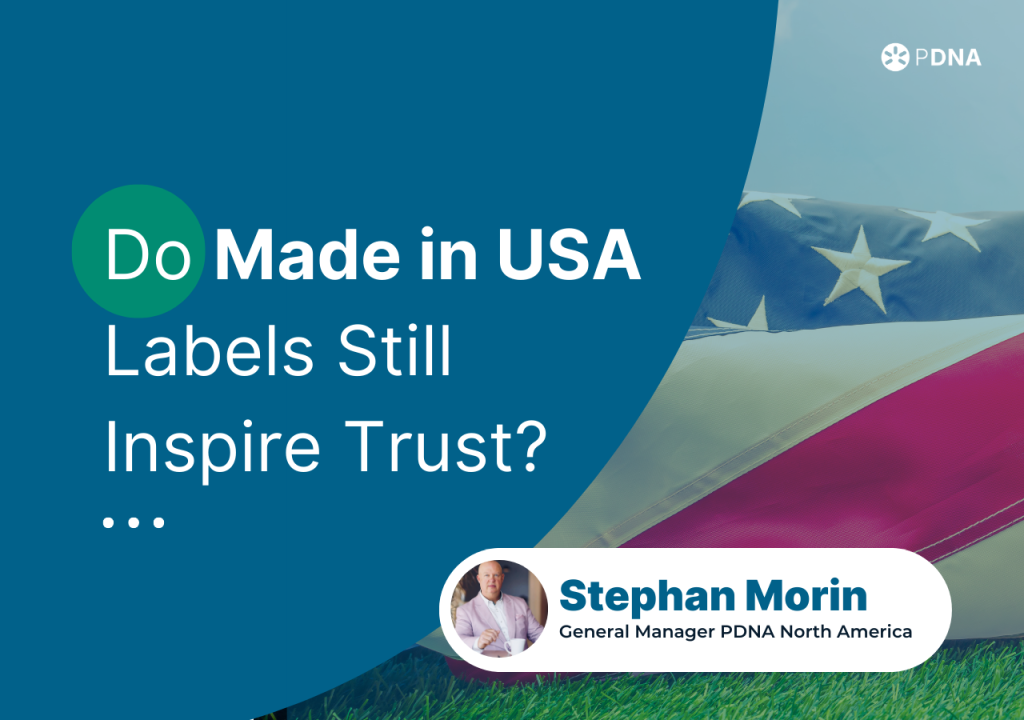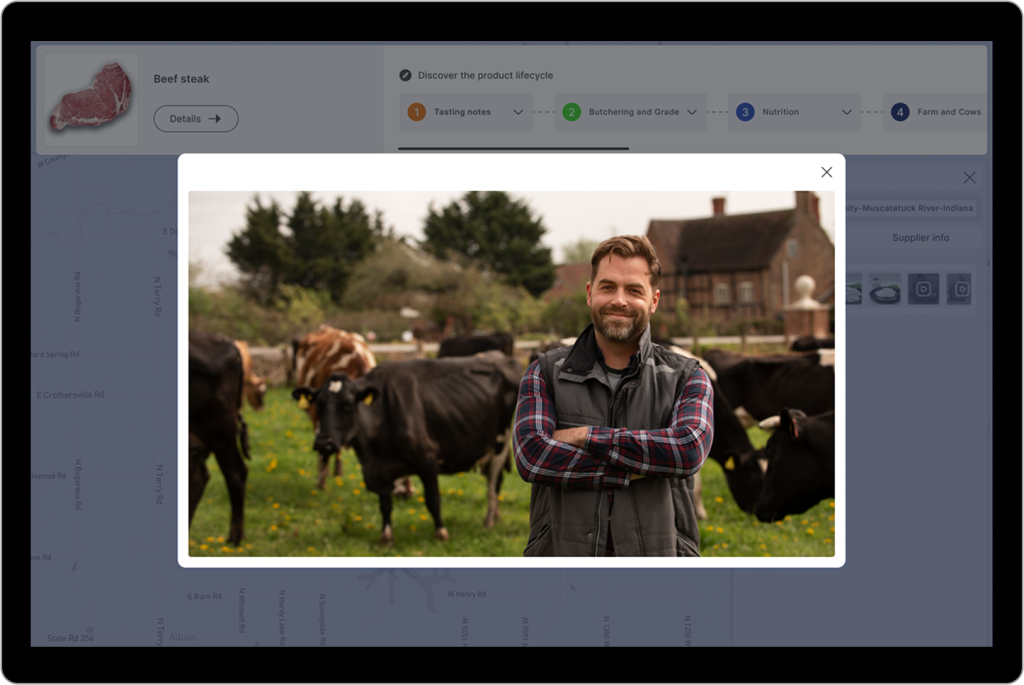Do “Made in the USA” Labels Still Inspire Trust?
Once, Made in the USA on a food package was all the assurance we needed. Local farms. Domestic jobs. Trusted safety standards.
Things look very different in 2025. Consumers question. Regulators are stricter. And the supply chain itself has grown too complex for a slogan to cover. The irony is that this skepticism arises at a moment when local sourcing is more urgent than ever: for economic resilience, national security, and for sustainability.
When the Label Cracks: Regulators Push Back
Beef is always the go-to example. For years, Product of the USA applied even if cattle were imported, so long as the meat was repackaged domestically. The loud signs of pushback appeared in 2023, when ranchers challenged the label as misleading, and consumers began to take notice. In 2024, the USDA finalized a rule to close the gap: to use the claim, animals must be born, raised, slaughtered, and processed in the U.S.Moreover, the FDA’s Food Traceability Rule, set to take effect in 2026, will require companies to document every “critical tracking event” in their supply chains: harvest, processing, distribution, and cold-chain handoffs. Those working in the industry will shrug it off as paperwork. But beneath the surface, it signals something much larger: the shift from marketing to measurable accountability.
The Consumer Shift
Consumers have grown skeptical because the sheer volume of information has trained them to doubt: watchdog reports, viral breakdowns, industry exposés. We have to admit, none gives a perfect picture, but together they’ve eroded blind trust. A label that once felt like proof now feels like the start of a question.
That shift is visible everywhere. A TikTok video dissecting the fine print of “Product of the USA” beef can rack up thousands of views in a week. Misleading claims like these are also making headlines in mainstream media, most recently with a California lawsuit that handed R.C. Bigelow a hefty judgment for labeling tea Made in the USA when the leaves came from overseas. Even small nonprofits now publish interactive databases comparing claims with reality, and those tools spread fast on Reddit or Instagram.
The point isn’t that an average consumer can and should trace every supply chain on their own. They can’t. It’s that they’ve seen enough cracks to know the surface won’t hold. One viral post is often enough to turn a marketing claim into a liability.
Traceability as a Competitive Edge
This is where transparent communication backed by traceability delivers what labels can’t. This powerful QR code can take a customer to a platform that shows the beef’s journey from ranch to table, with independently verified information.


Instead of a vague claim, consumers see a verifiable chain of custody. For food, the stakes surpass pride and promotion.
The Hidden Labor of Proof
But collecting data isn’t the same as verifying it. Certificates can be outdated, incomplete, or misleading. Suppliers can omit inconvenient details. In this case, software automation does help: checking formats, flagging expirations. Still, credibility requires expert oversight and, often, a methodology that includes boots-on-the-ground audits.
This is where many companies stumble: not in gathering information, but in processing, connecting, and proving it. That’s why, at PDNA, we approach every engagement as a partnership, helping companies make sense of every layer of their supply chain and ensure their claims stand up to scrutiny.
Trust at the Checkout
The lesson is simple: labels alone can’t carry the weight they once did. For brands, trust isn’t handed over by heritage or slogans; it has to be earned through proof.
Companies that commit to traceability build resilience and loyalty that advertising alone can’t buy. In my work, I’ve seen the difference: when businesses move from “claiming” to “showing,” the relationship with consumers shifts from doubt to confidence. People don’t expect perfection. They expect transparent communication. And when promises come with evidence, that transparency speaks louder than any label.
Stephan Morin | General Manager PDNA North America
Stephan Morin partners with businesses across the USA & Canada to turn transparent communication into a strategic advantage. At PDNA, he develops partnerships and projects that integrate end-to-end traceability, providing businesses with the tools to map supply chains, verify sourcing claims, and meet compliance requirements.

